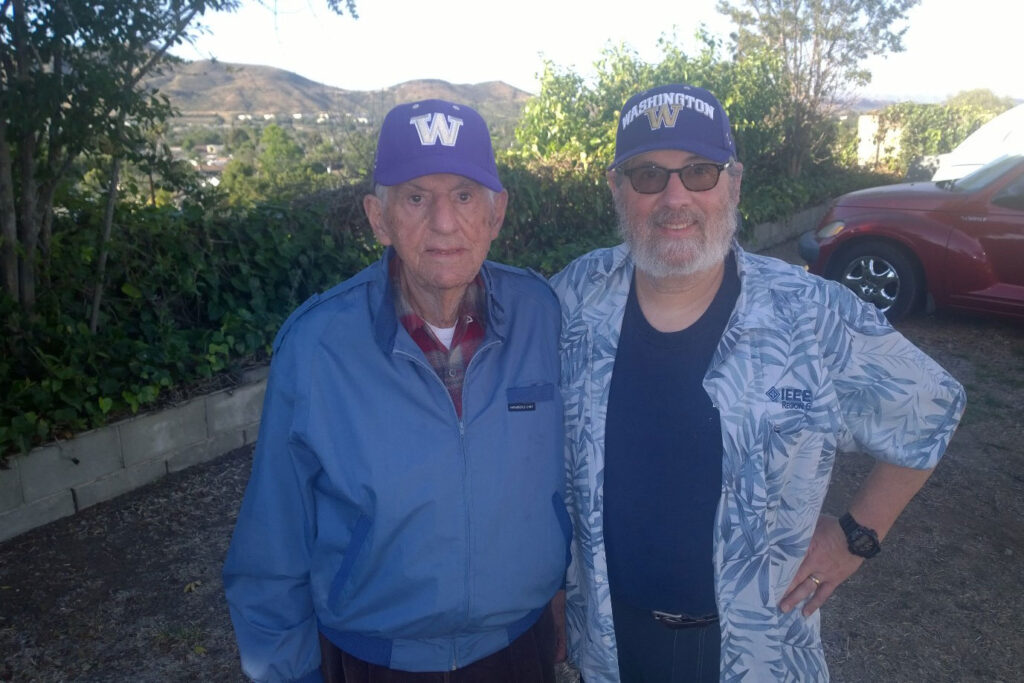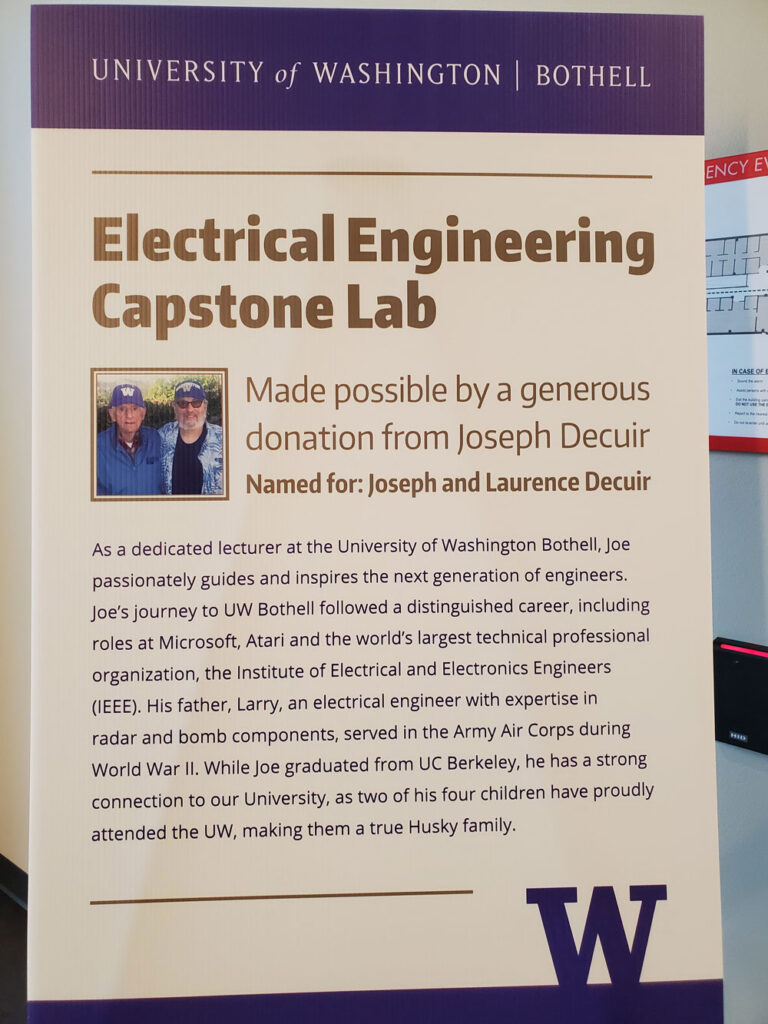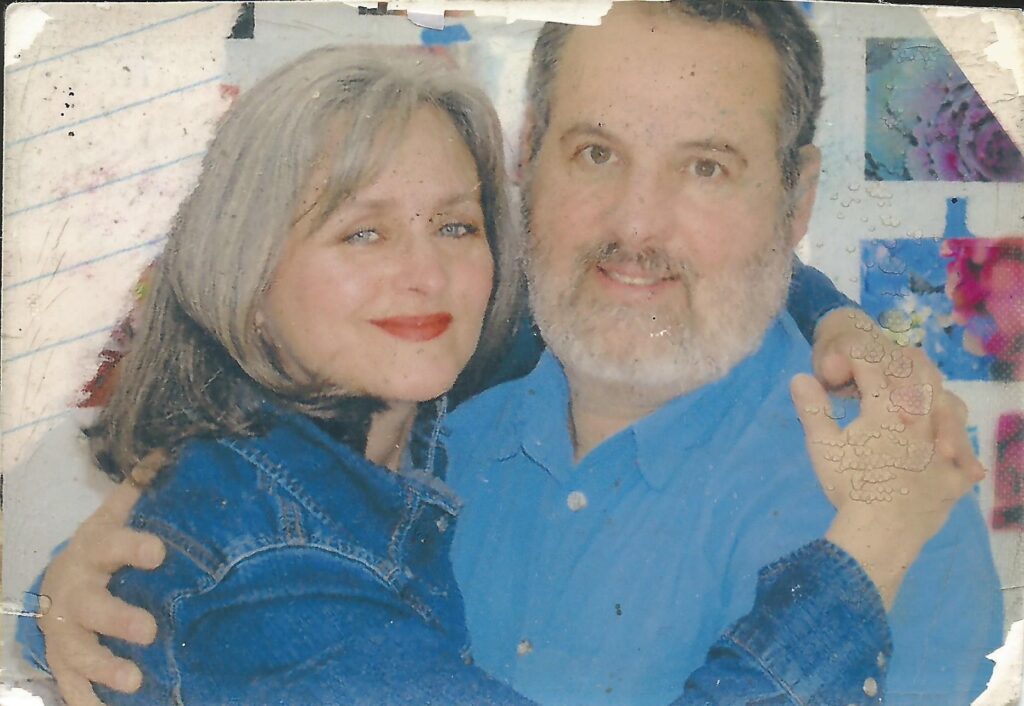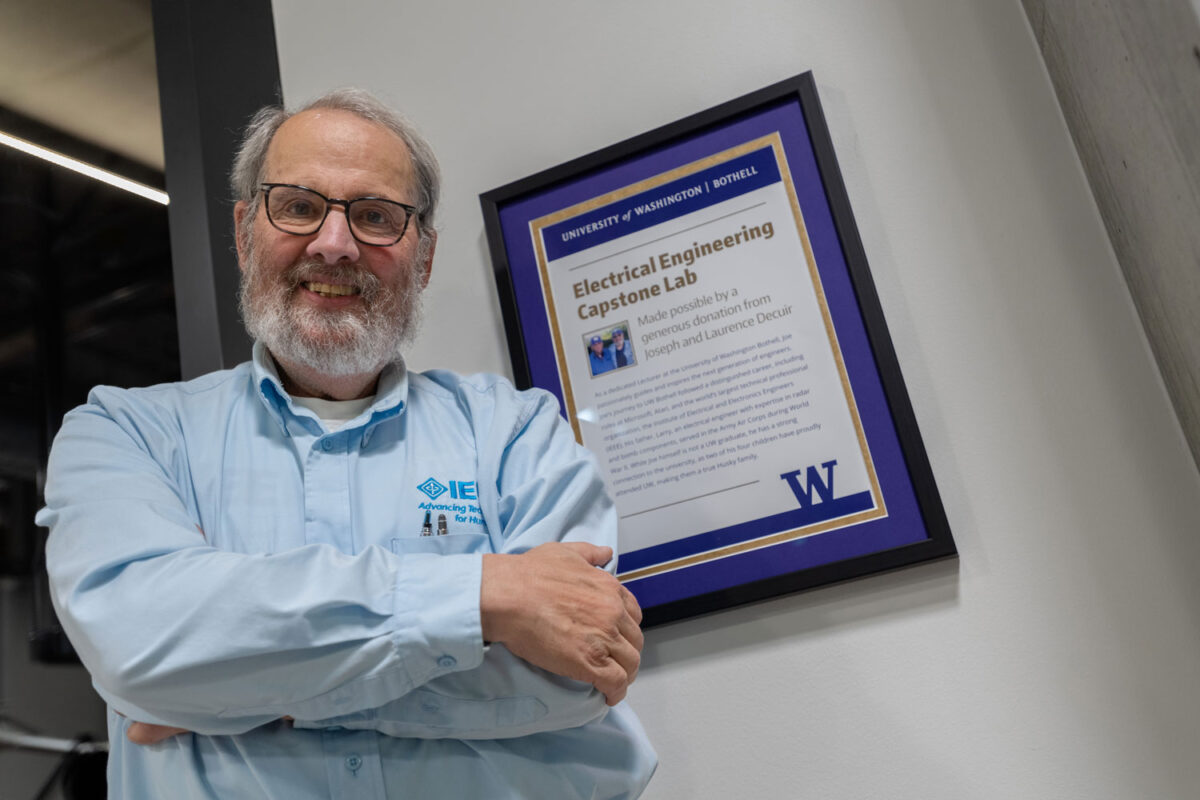Electrical engineering lecturer Joe Decuir asks himself this question every day: How can I be useful?
When Innovation Hall opened in January 2024, he didn’t have to look far for an answer. The University of Washington Bothell’s new hub for STEM academics was outfitted with a dozen labs, but initial funding for the state-of-the-art building didn’t cover electronics lab equipment.
Decuir stepped up with a gift of $100,000 last fall, helping to create the Electrical Engineering Capstone Lab and outfitting eight lab benches with oscilloscopes, power supplies, multi meters and wave generators.
Now, in both classes and clubs, students make constant use of the equipment.
“The department is trying to build a culture,” said Decuir. “We want students to do projects together and teach each other skills.”
With partnerships and parental advice
Students doing engineering capstone of all stripes — electrical, mechanical and computer — have taken up the call. In recent group projects, they have electrified a wakeboard boat, built equipment for an aquaponics farm and tested pressure sensors on wireless electric toothbrushes.

The toothbrush-testing capstone project is just one example of an industry partnership that provides UW Bothell students with hands-on, resume-building experiences. Practically speaking, some time-pressed companies turn to the University’s STEM programs to “outsource” their internships. One student on the recent toothbrush quality-control project, Decuir said, went on to a job with parent company Philips Medical.
Students tackle much of their coursework and capstone projects in the Electrical Engineering Capstone Lab, named in honor of both the donor and his late father. The senior Decuir worked as an aerospace engineer and died two years ago, just shy of his 101st birthday. Both father and son earned their engineering degrees at the University of California, Berkeley.
Decuir spoke with his father about the gift before he passed. The lifelong Golden Bear gave his blessing.
“Both of us understood that, as we get on in years and we have less time left — let’s do something useful with our lives,” said Decuir. “That’s what I’m doing.”
From Atari and Amiga to academia
Before joining the School of STEM in 2016, Decuir made himself useful in the electronics industry for 42 years. Starting in the 1970s, he designed medical electronics. After that job ended, he helped to pioneer video gaming at Atari and Amiga.

He went on to work at industry heavy-hitters such as Microsoft and Qualcomm, applying his talent and technical expertise to medical electronics, personal computers, dial-up networking, operating systems, and USB and Bluetooth technology. Most notable among the products he helped create are communications support in Windows 3.1 through Windows XP and several versions of Bluetooth Core Specifications.
Decuir specializes in communication between devices. To put it another way, he’s the person to thank when your wireless printer works on the first try. Decuir developed a communication technology using Bluetooth low energy to turn what was once an iffy proposition (Will the computer talk to the printer this time?) into a slam dunk. Decuir wrote the patent that the solution is based on; it’s his 13th patent and the only one that hasn’t yet expired.
“We are so fortunate to have Joe as a member of our faculty,” said Dr. Jennifer McLoud-Mann, dean of the School of STEM. “His deep knowledge and experience in the industry is inspiring to our students and teaches them what’s possible after they graduate.
“And thanks to his generous gift to the EE capstone lab,” she noted, “students can gain invaluable hands-on experience, which will equip them with the skills needed to create impactful capstone projects and excel in the workforce.”
For a new generation of engineers
Despite his industry stature and expertise, Decuir was laid off from his job at QualComm in 2015. He had just turned 65 years old. A substantial severance package conjured visions of an easygoing retirement, but life had other plans. Decuir’s wife, Deborah Freng, was diagnosed with cancer the next month.

As her disease moved into remission, she looked at her idling husband and told him, “Go do something useful.”
A few months later, Decuir joined the STEM faculty as a part-time lecturer. He maintained a quarter-by-quarter arrangement so he’d have the flexibility to support Freng whenever the need arose. His primary goal for his encore career? Pay it forward and pass on to the next generation how to be a successful industry engineer.
Besides teaching core competencies in digital logic, microelectronics and microprocessor systems, Decuir emphasizes business ethics and partnership skills in the classroom. Like his faculty peers, he is intent on preparing young engineers to not only get a first job in the industry, but to keep it.
“Business is a team sport,” said Decuir, “and we want to encourage students to work in teams.”
He measures success in the classroom not by how few calls he receives for tech support as in his previous career, but by the amount of information he can share with his students.
“Thanks to his generous gift to the EE capstone lab, students can gain invaluable hands-on experience, which will equip them with the skills needed to create impactful capstone projects and excel in the workforce.”
Dr. Jennifer McLoud-Mann, dean of the School of STEM
The long and winding road
Five years ago, Decuir’s wife saved his life by administering CPR when he had a heart attack. “She pounded the crap out of my chest,” he said. “It hurt for months.”
Outfitted with an implantable cardiac defibrillator, he said he wakes up every day grateful to still be alive.
But Freng wasn’t so fortunate. Her cancer progressed, and in spring 2022, she entered hospice care. Decuir took time off to accompany her end-of-life journey. She died that summer.
He said he still remembers his wife’s clear-eyed view of his second career as a teacher. “She said explicitly, ‘I’ll leave you and not by choice, but I’m glad that you have something that gets you out of bed in the morning.’”




